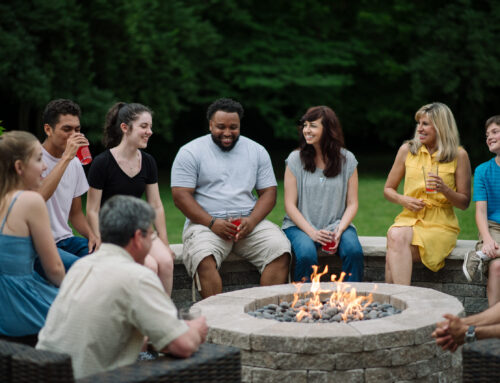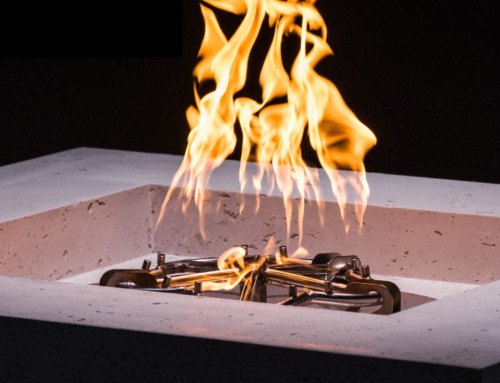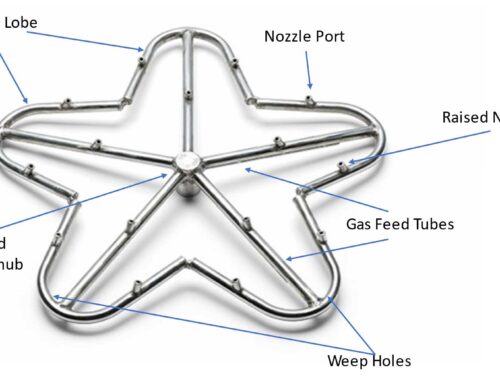HPC Explains Basic Principles of Combustion
HPC Fire Inspired innovates quality robust designs meant to stand the test of time. Our fire features create a natural orange to yellow campfire flame setting the mood for all your entertaining needs. From day to night, HPC will set your event off right. HPC values educating our consumers. Through education we empower our customers to make informed purchases. This Tech Talk is dedicated to explaining basic principles of combustion and how it pertains to HPC’s brilliant flame.
Combustion Explained:
Combustion refers to the rapid oxidation of fuel accompanied by the production of heat or a combination of heat and light. There are three necessary conditions to facilitate combustion: a source of fuel either natural gas or propane, oxygen or atmospheric air, and activation energy in the form of a spark, heat or flame.
To achieve sustained combustion, gas molecules mix with air and the activation energy is introduced. Next, the heat increases the speed of the molecules creating a release of energy producing a visible flame.
Properties Of Gas:
It is important to know the source of your fuel. Propane and Natural Gas both yield benefits but act slightly differently. Propane is a more volatile fuel when compared to natural gas. Propane (LP) has a lower ignition temperature so the source can be smaller and further away. LP is more dense than air, therefore, propane tends to sink or pool. To create proper combustion, LP requires more air than natural gas. Propane requires 24 cubic feet of air for every 1 cubic feet of LP that is consumed. Natural Gas has a higher ignition temperature than LP and is less dense than air and tends to rise. Natural gas requires 10 cubic feet of air for every 1 cubic foot of natural gas.
The consumption of energy is measured in BTU’s or British Thermal Units. 1 BTU will raise 1 lb of water by 1 degree Fahrenheit. HPC’s appliance BTU ratings are measured in input on the inlet.
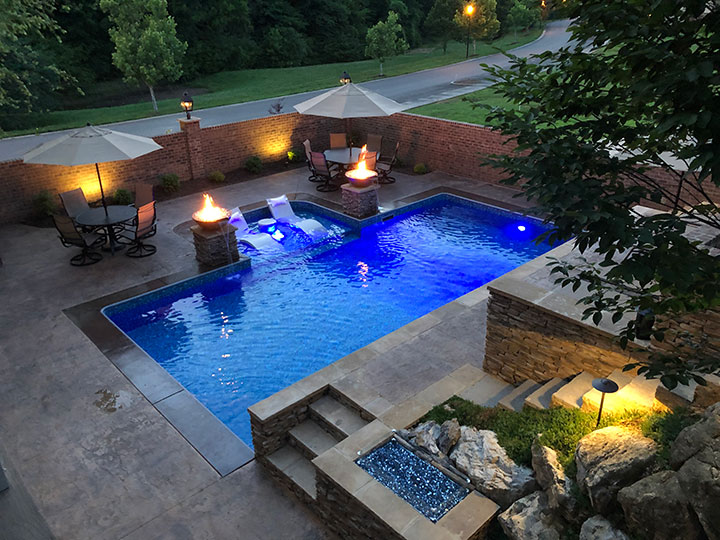
Benefits Of Gas Fueled Flame:
Gas fire pits offer many advantages to our consumers such as modern conveniences that traditional wood burning features do not offer. Gas fire features are easily operated and do not require wood to sustain the flame. With a simple touch of a button you can enjoy the beauty and warmth of an HPC flame. In turn, this yields both financial savings as well as energy conservation that span over time of use.
In terms of cleanliness, Gas fire features require significantly fewer maintenance tasks and cleaning responsibilities when compared to wood burner fire units. This is because burning wood produces more residual byproducts that are hazardous to ones health. Gas fire features create the natural ambiance of a flame without the smoke and byproducts. Enabling our consumers to safely enjoy the fire. As stated by the Green Home Institute, gas fire features emit 99% less pollutants creating a smaller environmental footprint than wood burning fire units.
Gas fueled fire appliances can be safely run for longer periods of time than wood burning fire units. Wood burning units require regular tending whilst they are burning to maintain the fire safely and this leaves room for human error. A gas fueled appliance can be turned on and off with a simple flick of a switch. Each HPC fire appliance is outfitted with built in technological safety features. HPC remains in compliance with ANSI and CSA standards. In addition to the Third party testing, HPC provides a final internal test of the full appliance. HPC takes the extra step to test the whole unit ensuring that the ignition system, valve, pan and burner all work seamlessly together giving off our signature brilliant flame. As an added precaution, HPC developed Flame Sensing Technology. This mechanism allows the valve to recognize if there is a flame on the pilot. The valve will remain open allowing gas to flow if a pilot flame is present and will close in the event that the pilot flame has extinguished. The value of safety is upheld as first and foremost for each HPC design. Overall, HPC Gas fire features operate safely and offer layers of protection that give our consumers peace of mind.
Testing & Safety:
Through in house testing, HPC has identified proper levels to achieve a safe, natural, orange yellow flame. HPC’s dedicated Research and Design team puts each design through rigorous testing based on ANSI standards to ensure quality appliances that are not only safe and reliable but stand the test of time. Each piece is carefully tooled and inspected during the assembly process. HPC’s quality and control team provides a final internal test of the fully assembled appliance remaining in compliance with ANSI standards. While competitors neglect this crucial step, HPC takes the time to test the whole unit ensuring that the ignition system, valve, pan and burner all work seamlessly together giving off our safe, reliable, signature brilliant flame. Beyond testing, HPC has created another layer of protection for our consumers with the development of our safety technology. HPC’s research and design team developed Flame Sensing Technology. This mechanism allows the valve to recognize if there is a flame on the pilot. The valve will remain open allowing gas to flow if a flame is present and will close in the event that the flame has extinguished. In addition, HPC’s Technical Support Team undergoes extensive training and each team member is certified by the National Fire Institute. Their knowledge and expertise offers dealers, architects and our customers informed guidance around all their fire design needs from installation advice to trouble shooting. As you can see, HPC weaves safety through all points of service from testing, to technology, to our certified technicians.
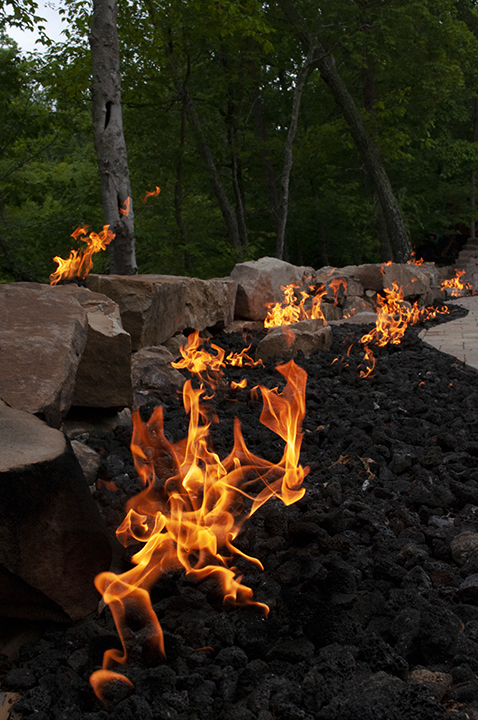
Customer Satisfaction:
HPC values knowledge and invests in the exploration of best practices as well as engineering to ensure quality and performance for each fire design. We stand by our units with our life time guarantee, promising it will light every time rain or shine.
As always HPC prides itself on the service of our consumers through the development of quality and safe products providing education and accessibility to HPC Fire Feature Experts. Have any questions or concerns, contact Chuck Parsons and our NFI Certified Tech Team at 937-436-9800. HPC is always striving to raise the standards for the fire industry by breaking trends and making a lasting mark.

